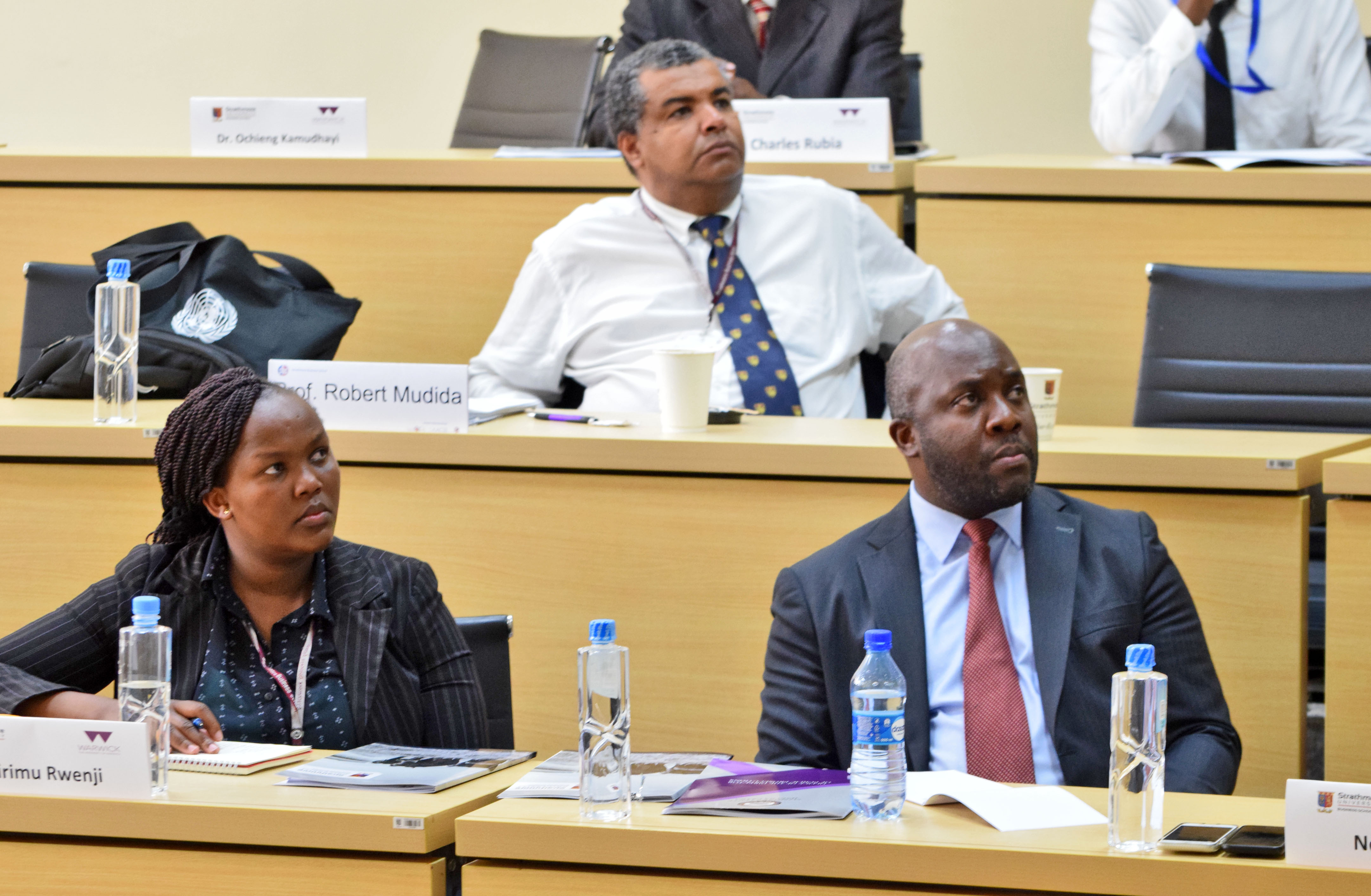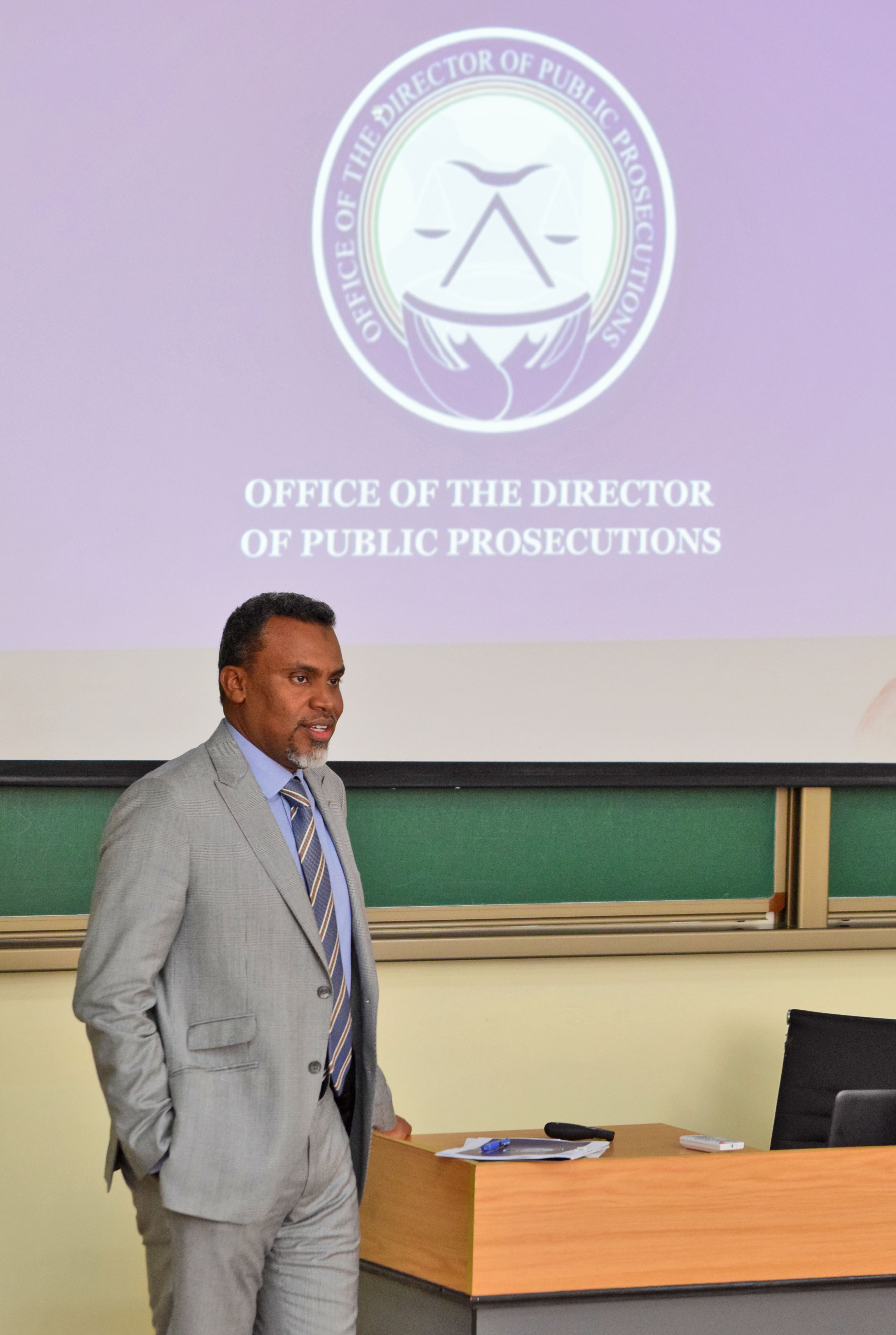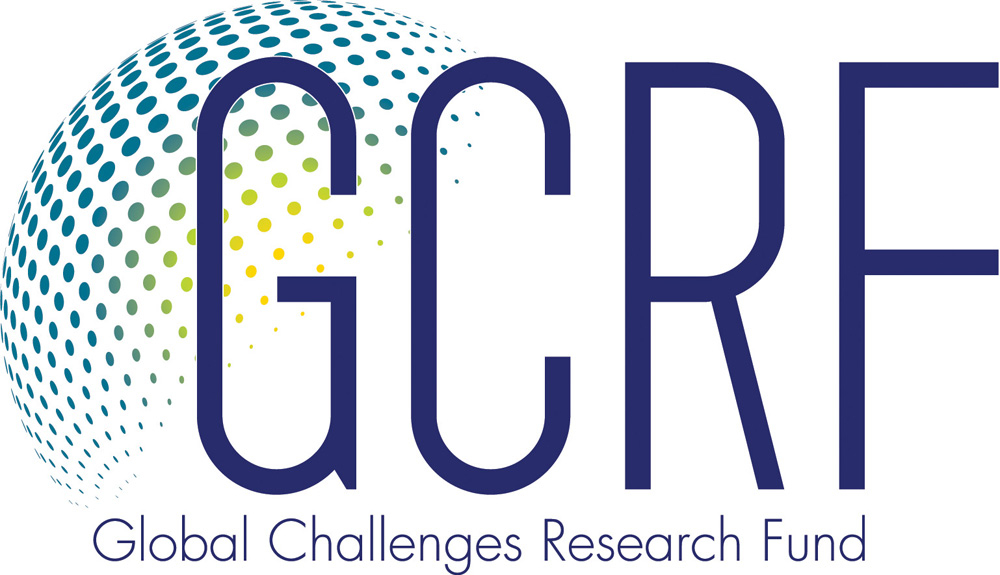Training trainers for ethical challenges in public office
Corruption, inefficiency and fraud are often thought to blight public office in countries such as Kenya.
However, the causes of such problems are often deeply embedded in culture and politics and although they are often stridently denounced, this means that their discussion can face major cultural and political barriers. Non-governmental and international organisations also tend to take a very Western stance on what counts as good governance, but this often makes constructive conversations difficult. The challenge is to move beyond this and assist in the development of a professional public service sector that can serve its country with integrity.
A research project led by Professor Mark Philp has been trying to help public servants recognise and negotiate the challenges they may encounter in public office.
Navigating challenges in public office
The project was undertaken in collaboration with Professor Robert Mudida and Dr John Ambani from Strathmore University in Nairobi. The project aims to create a more reflective public service that aspires to high standards of integrity.
“The project is designed to promote good governance in central government, county administration and public service. It aims to promote critical judgement, discussion and decision making amongst those responsible for the delivery of public services. Employees are under pressure to act in ways that subvert their official functions” explains Professor Philp, who also works as Chair of the Research Advisory Board of the Committee on Standards in Public Life in the UK.

Professor Mudida and colleagues listening to the presentation by the Director of Public Prosecutions at the workshop in standards in public life held at Strathmore
Realism at the heart of training

Noordin Haji, the Director of Public Prosectons, addresses the workshop co-convened by Warwick and Strathmore Universities in Nairobi
Research shows that public servants like rules to follow, but these are often confusing, in conflict, or need considerable interpretation – if they exist at all. With this in mind, Professor Philp and his team have developed a training programme to help public servants recognise, reflect on and negotiate the challenges they are likely to come across in public office, with the long-term goal of reducing corruption, inefficiency, bureaucratic obstructionism and duplicity.
As part of the training programme, realistic scenarios are used to help develop common standards of judgement among public officials.
Traditionally, when scenarios are used in training, they tend to over-simplify matters. Research suggests that more challenging materials are needed if various forms of malpractice are to be avoided, and the project initially planned to generate a range of publicly available training materials tailored to staff in public office and drawing on the principles that exist in the 2010 Kenyan Constitution.
In practice, it became clear that the best designers of scenarios were public servants themselves, especially when engaged in a process of dialogue with others who are prepared to press the cases they develop for the underlying principles they illustrate.
Collaboration is key
Having developed a strong partnership with Strathmore University in Nairobi, the Warwick team is developing close links with public service sectors responsible for training to gauge the response of trainers to new methods, whilst expanding the existing sets of scenarios. The team ran a comparative workshop examining the use of the Nolan Principles in the UK, their place and functioning in Chapter 6 of the 2010 Kenyan Constitution, and the use of principles of conduct as a basis for Supreme Court decisions in Uganda.
The approach was highly collaborative – working with those in public service to help them to develop materials that they find challenging in terms of judgement and decision making.
“It was vital to work to with the trainers from an early stage in designing the scenarios” explains Professor Philp. “The project involved enabling local people to work with us, to help them develop a judgement-based approach that is responsive to the distinctive understandings of public office in Kenya.”
There is also a practical challenge of ensuring that people in public service realise the benefits of this new approach, and to develop the capacity for them to run the programmes. “This project was to ‘test the water’ in this area, and to establish connections with those centrally responsible for training” says Professor Philp.
Paving the way for a fairer political future
“We undertook the project at a critical time in Kenyan politics" explains Professor Philp.
"There was an increasing focus on tackling corruption in the political system. We were particularly pleased that a senior member of the Office of the President and the Director of Public Prosecution both became involved. They showed considerable enthusiasm for the project and the notion of critical judgement.”
The project has also created a firmer basis for future collaborative research. Several Strathmore University academics with teaching responsibilities in public administration, law and ethics were also involved with the project.

The project has cemented a strong basis for further collaborative research in Kenya and Uganda
“Their positive response to the discussions that took place suggested that it will be possible to embed this approach in course materials and the practices of the institution in certain areas. We also elicited interest in further contact from private companies who also want to ensure that staff develop a more reflective and critical attitude to the demands placed on them in the course of their work” Professor Philp states. “By expanding our research in this field, we will have the opportunity to greatly improve the legal system and rights of Kenyan citizens.”
The project will help contribute to the UN’s Sustainable Development Goals of Peace, Justice and Strong Institutions and Reduced Inequalities.
Principal Investigator: Professor Mark Philp
Country: Kenya
UN Goals addressed:



